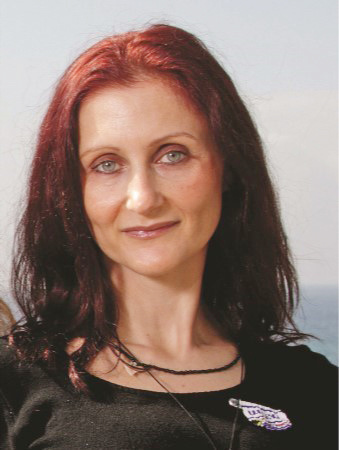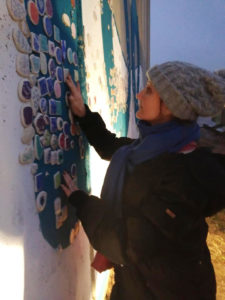
Israel

“Thank G-d for our Domeys” – Israelis fierce under fire
The site of the Iron Dome upon a hill in Modiin is comforting yet fills me with dread. Israelis know that when Iron Dome batteries are rolled out across our cities, we’ll face the now all-too-familiar barrage of rockets and mortars fired by terror entities in the Gaza Strip.
Last Friday, the Israel Defense Forces (IDF) launched Operation Breaking Dawn, pre-emptively striking with pinpoint precision Palestinian Islamic Jihad (PIJ) targets in the Gaza Strip. Following the arrest of PIJ leader Bassam al Saadi during counter-terror operations in Jenin in the West Bank, military and security officials received intelligence that the terror group was planning to launch attacks on Israeli civilians. The IDF moved quickly, shutting down access roads to the Gaza border, locking down communities, and shutting off train services between the city of Ashkelon and Sderot, the most bunkered town in the world.
Israelis waited for the storm that would inevitably follow the tense calm.
It started with barrage after barrage of rockets fired at Israel’s southern communities. More than 1 500 000 of us who live within an 80km radius were advised by the IDF Home Front Command about the dangers of incoming rockets. City after city opened their public shelters, and families prepared personal shelters for any inevitability.
The sirens wailed, the booms from Iron Dome interceptions followed, and the cycle continued. My peaceful Shabbat reverie was interrupted on Saturday, 6 August, by the wails of our siren, sending my husband and I (and our very disciplined cat) running into the shelter. A boom followed. An explosion was reported just outside the city that left a small crater in the ground. The obligatory, “Are you guys okay?” WhatsApp messages soon circulated.
I’m not embarrassed to share the fact that sirens scare me. The warning wail of an air-raid siren makes me anxious – a feeling shared by many. In spite of working in the media and being particularly busy during these times of tension, I still feel anxious.
PIJ would continue to pound our southern communities, but would also fire rockets as far as Tel Aviv, Beer Sheba in the Negev desert, and Jerusalem, a city holy to Jews, Christians, and Muslims. They fired their weapons of destruction towards Jerusalem on Tisha B’Av, a day of fasting, reflection, and mourning for our holy Temples that were destroyed.
At 23:30 on Sunday night, an Egyptian-brokered ceasefire had gone into place, ending 66 hours of fighting. The IDF claimed it had achieved all of its aims and believed PIJ had been pressured by Hamas to accept. That organisation stayed out of the fray for a variety of reasons, but don’t be fooled into thinking it’s going soft!
By the end of the weekend, 1 100 rockets had been fired by PIJ, 47 Israelis were injured, 95% of incoming rockets were intercepted by the Iron Dome system – thank G-d for our Domeys – and more than 200 misfired rockets fell in the Gaza Strip, killing 16 out of 27 civilian casualties. This has been acknowledged by the Gaza media as well as PIJ, which has offered compensation to the families of the victims. Will it pay from its swollen Iranian-backed coffers?
Living on the frontline are Israel’s southern communities. You couldn’t meet more extraordinary people. I visit the south often, taking groups or individuals to visit our rocket-proof WIZO (Women’s International Zionist Organisation) day-care centres and to meet the staff who work to help the people of Sderot and surrounds cope with the profound trauma they have experienced for several decades.
The people of Israel’s south are a true inspiration. They have a fierce Zionist spirit and community and are determined not to be chased out of their homes and towns, but they experience trauma few of us can understand. Over the past two decades, through countless attacks, children have grown up with the all to-familiar sound of the tseva adom (red alert) being called out from speakers. Sirens don’t wail because that’s far too scary for many. There are teenagers who still wet the bed, small children who can recite exactly what they need to do when they hear the tseva adom, and parents who feel the strain of helping their children deal with post-traumatic stress disorder while coping with their own.
Just before the COVID-19 pandemic, I had the privilege of leading a WIZO delegation on a visit to the south that included our rocket-proof day-care centres, trauma centre, a terror tunnel with an exit point in the middle of a sunflower farm, as well as a visit to Kibbutz Netiv Ha’asara, located just metres from the wall that divides Israeli sovereign territory from the beleaguered strip.
The residents have buried several of their own over the years, killed as a result of rocket attacks. It’s this kibbutz that in 2014 reported “strange digging noises beneath us”. WIZO evacuated the entire kibbutz, hosting residents in its projects further north. This past weekend, my heart sank every time I saw the alerts for incoming rockets and mortars.
They have fought back in the most Israeli way possible, starting a project called “Path to peace”. Visitors are encouraged to choose a small tile from the collection made on the kibbutz and place it on the “peace wall” that divides Palestinians and Israelis in the hope that the message of peace will someday manifest into reality. They have hope, which is the greatest weapon against hate. Make no mistake, Israelis will defend themselves with everything they have, but will stubbornly pursue hope with everything they are.

This resilience is the spirit of the south, it’s the character of Israel, and it’s why try as hard as they might, terrorists will never defeat us. Am Yisrael chai!
- Rolene Marks is world WIZO executive for public diplomacy and hasbara, and is co-founder of Lay of the Land and the SA-Israel Policy Forum.










